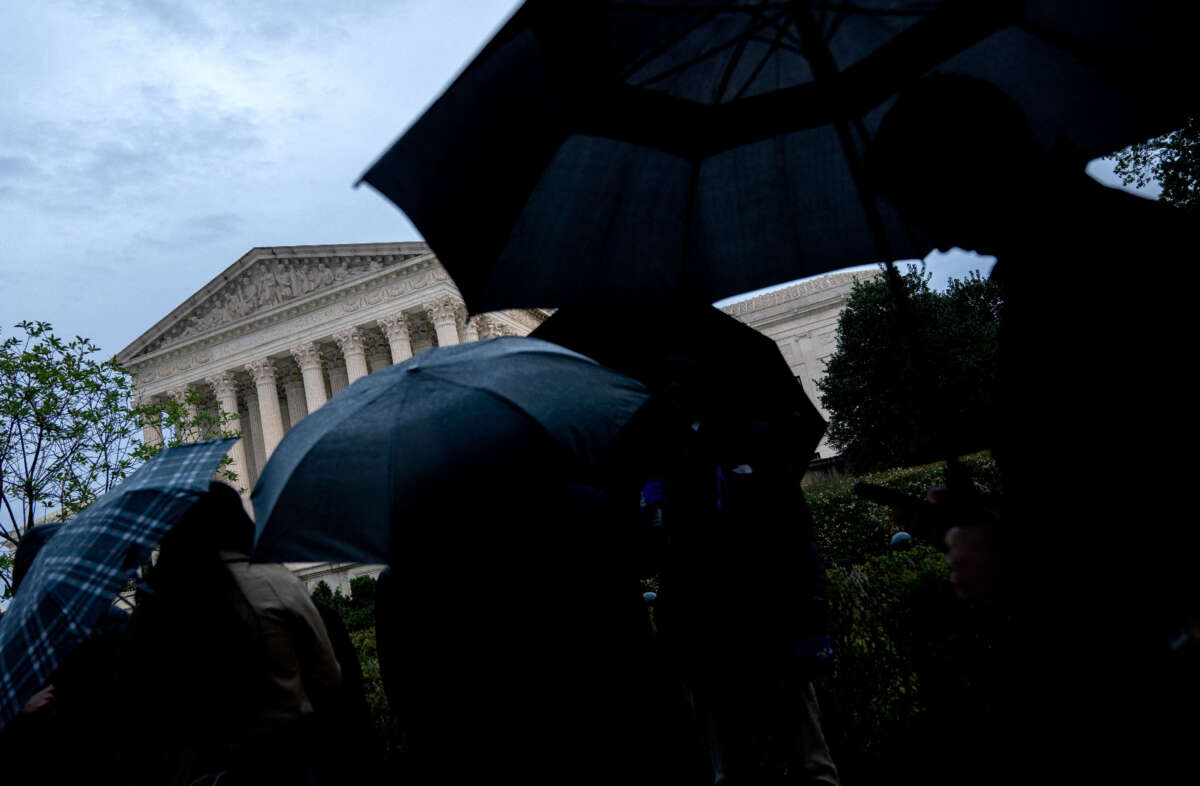The Supreme Court has agreed to take up a case originally filed by Republican-led states to challenge President Joe Biden’s student debt cancellation plan in a case that will affect the bank accounts of tens of millions of people across the U.S. for years to come.
The justices have fast-tracked the case and are slated to hear arguments in February. Until then, the cancellation plan will be on hold, as justices left in place an injunction issued by the U.S. 8th Circuit Court of Appeals in St. Louis last month that the Biden administration sought to appeal.
“We welcome the Supreme Court’s decision to hear the case on our student debt relief plan for middle and working class borrowers this February,” said White House Press Secretary Karine Jean-Pierre in a statement.
“This program is necessary to help over 40 million eligible Americans struggling under the burden of student loan debt recover from the pandemic and move forward with their lives,” Jean-Pierre continued. “The program is also legal, supported by careful analysis from administration lawyers.”
Student loan borrowers will not need to pay off loans until mid-2023, as the Biden administration last week extended the student loan payment freeze until the end of June, with Biden saying that “it isn’t fair” to ask borrowers to resume payments when they don’t know if their debt will be canceled.
Legal experts pointed out that the Supreme Court’s decision to take up the case before judgment on the case was made in the U.S. Court of Appeals is typically highly unusual — but the move has been employed much more often by the current far right-dominated Supreme Court.
Such a move, known as granting certiorari before judgment, wasn’t used for nearly a 15-year stretch between 2004 and 2019, as University of Texas legal scholar and CNN columnist Steve Vladeck pointed out on Thursday. Since 2019, however, with a comfortable conservative majority in the court, justices have now granted certiorari before judgment 18 times, including in the student debt case.
For student debt relief advocates, this decision is further evidence that justices on the Supreme Court are increasingly acting like conservative activists rather than the supposed impartial arbiters of law they are supposed to be. “Literally legislating from the bench,” the Debt Collective wrote on Twitter in response to Vladeck’s finding.
The injunction came after the plan was blocked by Texas U.S. District Judge Mark Pittman last month. Pittman, a Donald Trump appointee, ruled that the plan was unconstitutional using bizarre and self-contradictory arguments, as legal experts and debt activists pointed out.
The case was brought by six GOP-led states wishing to block the plan. Republicans have been opposed to student loan forgiveness, and some legal experts say that holding up the plan in court is, in part, a strategy to ensure that the cancellation was delayed at least until after the midterm election. The party is also generally opposed to government action that helps the average working-class American.
It is unclear how the Supreme Court will rule in the student debt case, though the high court’s right-wing supermajority has consistently ruled with the far right over the past year.
If the court follows this trend, it would not bode well for student debt borrowers — even if that decision would go against the dozens of legal and economic experts who have said that Biden has the broad authority to cancel student debt. Right-wing justices, however, have increasingly shown their alliances to conservatives and right-wing lobbyists in recent months. As The Atlantic’s Adam Serwer pointed out after the Supreme Court overturned Roe v. Wade in June, the court is increasingly treating right-wing talking points as the law. And, as reporters have uncovered in recent months, at least two active justices have apparently enjoyed extremely close relationships with right-wing activists, with Samuel Alito even allegedly leaking the decision of a landmark contraception-related case to activists in 2014.
Join us in defending the truth before it’s too late
The future of independent journalism is uncertain, and the consequences of losing it are too grave to ignore. To ensure Truthout remains safe, strong, and free, we need to raise $44,000 in the next 6 days. Every dollar raised goes directly toward the costs of producing news you can trust.
Please give what you can — because by supporting us with a tax-deductible donation, you’re not just preserving a source of news, you’re helping to safeguard what’s left of our democracy.
